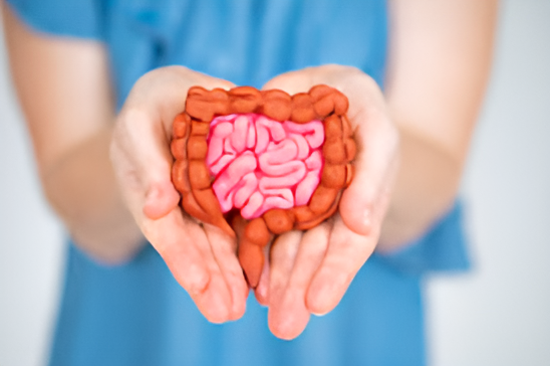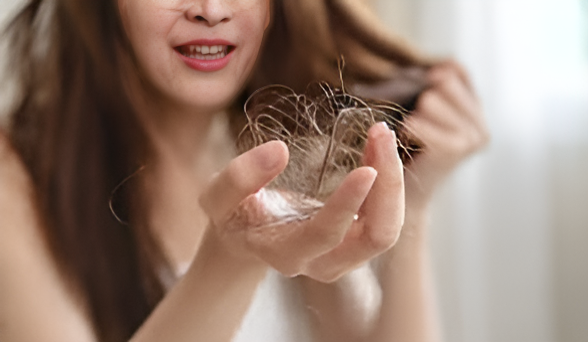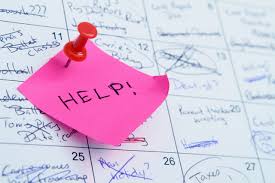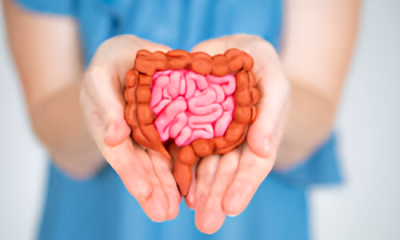Body and Health
Effective Fitness Guidelines for a Healthy Adult Lifestyle

Being fit is not only for sports lovers or gym users. Fitness is a necessity for all adults of all ages. Regular exercise makes life happier. Fitness takes a backseat in the busy lifestyle of today. But it is easier to be active than you would think. This blog provides easy-to-follow and easy-to-apply fitness tips for every adult. You will learn how to stay active, avoid injuries, and feel great every day.
Why Fitness Matters for Adults
Fitness improves nearly every part of your life. Exercise regularly boosts energy, mood, and mental health. It even lowers your risk of becoming ill.
Regular exercise helps adults avoid heart disease, diabetes, and obesity. They’re less stressed and anxious as well. Having a healthy body also makes your brain perform better. Fitting fitness into your daily life is not only great—it’s essential.
Start with a Simple Plan
You don’t need an elite trainer or gym. Start small with daily habits. 30 minutes of walk a day is enough. If you are not accustomed to fitness, start slowly. Make goals that you can accomplish in a week. Then gradually build your way up with time. Build intensity gradually. Track your progress through the aid of a notebook or app.This keeps you motivated and on the right track with your plan.
Include All Four Types of Exercise
Your entire exercise program should include four types of exercise. Each kind helps your body in many different ways.
1. Aerobic (Cardio) Exercises
These activities get your heart rate up. They make your lungs, circulation, and endurance stronger.
Examples: Brisk walking, cycling, swimming, jogging, or dancing. Try 150 minutes of moderate aerobic exercise weekly. You can break it up into smaller chunks.
2. Strength Training
Muscle building makes your bones and joints stronger. It burns calories at rest too. Examples include push-ups, weight training, resistance band exercises, or body squats. Strength train at least two times a week. Train all muscle groups majorly.
3. Flexibility Exercises
Flexibility avoids injuries. It keeps joints and muscles in good working condition. Examples: Stretching, yoga, or simple mobility drills. Do some stretching after exercising or 10 minutes a day.
4. Balance Exercises
Proper balance keeps you from falling and standing up tall. You will need to do this as you get older. Things like Standing on one leg, heel-to-toe walking, or doing tai chi. Do balance exercises whenever you can a few times a week.
Fuel Your Body with the Proper Foods
You are only half-way there with exercise. You have to eat properly, too. Eat plenty of vegetables, fruits, lean protein, and whole grains. Drink plenty of water—at least 6 to 8 glasses of water a day. Avoid sugary snacks, fried foods, and soft drinks. These make you slower and tired. Eat a small protein snack after exercises. It will help your muscles recover faster.
Stay Consistent, Not Perfect
It’s okay to miss a day now and then. Things come up, and things get in the way. The key is that you’re consistent overall. Don’t quit if you miss a workout. Pick it up again the next day. Small things make big differences. Get habits into play in your daily life. Take the stairs, walk to the water cooler, or stretch at bedtime.
These small things keep you going without adding extra time.
Listen to Your Body
You should be challenged by fitness—but not in pain. Sore muscles are fine, but pain is a sign that something’s not right. Warm up before each exercise session to prepare your body. Cool down afterwards to stretch out muscles. Take a break and rest if you feel dizzy, breathless, or in pain. If it persists, consult a physician.
Respect your boundaries and build strength with age.
Make Fitness Fun and Social
Exercise does not have to be boring. Try different workouts to make it exciting. Learn a dance class, do sports, or hike with friends. You can even do home workouts via YouTube. Working out with people makes it more fun. It also keeps you motivated and on track. Fitness must be something you enjoy—not something you dislike.
Sleep Well to Recover and Grow
Sleep is when your body heals and builds strength. Adults need 7 to 9 hours of sleep each night. Lack of sleep hinders your progress and increases your risk of injury. It also affects your mood and focus. Try to go to sleep and wake up at the same time every day. Avoid screens before bed, and keep your room dark and quiet. Better sleep leads to better fitness results.
Mark Your Progress and Reward Yourself
Maintain a workout, step, or weight loss log. This helps you see progress over time. Set weekly or monthly goals. Treat yourself when you meet them. Buy new exercise gear or treat yourself to a healthy food. Rewarding small wins keeps you motivated and excited for the journey.
Create a Stronger Tomorrow, Today
Fitness isn’t about being perfect. It’s about showing up, staying active, and building habits that last. By following these fitness guidelines, you’ll feel better, look better, and live a longer, healthier life.Start today, one step at a time. Your future self will thank you.
Body and Health
Digestion Made Easy: Daily Habits for a Healthy Gut

Good digestion is part of the key to a healthy body and mind. When your digestive system is in good working order, your body receives the nutrients that it needs in order to grow, stay active, and fight off disease. If your digestion is poor, however, you may feel bloated, tired, or even queasy. Luckily, you don’t need to drastically alter your habits to correct this. Daily habits can help your digestion and make you feel better. Today, we’ll talk about the easy and natural ways to support your daily digestive health.
Why Your Digestion Needs Daily Care
Your body’s digestive system is working around the clock, even when you’re sleeping. It breaks down the food you eat into nutrients and sends them to the parts of your body that need them. When your digestion is healthy, everything works just fine from the way you feel after meals to the amount of energy you have. But when digestion is sluggish, constipation, gas, and stomach pain begin to happen. Maintaining your digestive system every day enables your body to effectively absorb nutrients and enables you to feel light and energetic.
Eat More Fiber-Rich Foods Every Day
Fiber helps move food through your body and keeps your stomach and intestines healthy and clean. It prevents constipation. You can get fiber from many foods like fruits, vegetables, whole grains, lentils, and beans. Have a salad, an apple, or a whole-grain sandwich every day. These keep your digestive system functioning well and in balance. The more unprocessed and natural your food is, the better it is for your gut. Begin to add fiber to your diet slowly and include water in order to help it work better.
Drink Plenty of Water Throughout the Day
Water helps digest food in your body and flushes out waste from your body. Without enough water, digestion slows down, and constipation or cramps may result. Try drinking at least 6–8 glasses of water every day. Have a bottle of water with you at all times to make it easily accessible. You can also drink water-filled foods, such as cucumbers, oranges, and watermelon. If water becomes too bland, add lemon or mint to it for a flavor. Keeping yourself hydrated is one of the easiest ways to help in easy and smooth digestion.
Chew Your Food Slowly and Properly
Digestion begins in the mouth. When you chew food well, it is shredded into smaller pieces so it will be easier to digest. Failure to chew for a sufficient amount of time or rushing through eating may cause digestion to be harder. Try taking small bites and chewing each mouthful 15–20 times. This not only aids in digestion but prevents you from eating more than you can handle. Eating slowly allows your body time to catch up with your brain, leading to feeling better in general after a meal. Slow down and savor your bites.
Add Probiotic Foods to Your Diet
Probiotics are “friendly” bacteria that maintain the health of your gut. They facilitate digestion and can even help reduce bloating and gas. Yogurt, kefir, kimchi, miso, and pickles are all probiotic foods. These foods stabilize your gut bacteria and strengthen your digestive system. Try mixing in a tablespoon of yogurt in your morning breakfast or consuming some fermented vegetables during lunch. You don’t need much—small amounts daily can make a big difference in the long term.
Don’t Overeat and Eat Regularly
Overeating at one meal will slow down your digestion and leave you feeling sleepy or sluggish. Try to eat smaller portions and stop when you feel approximately 80% full. This leaves your body enough space and energy to digest food without exerting. Eating meals at evenly spaced intervals also helps. Skipping meals or eating meals very late at night can confuse your stomach and slow down digestion. Stick to a regular eating schedule with breakfast, lunch, and dinner. Thus, your stomach knows what to expect and functions optimally.
Keep Active With Light Daily Movement
Exercise is not just good for muscles—it is also beneficial for your stomach. Light exercise helps your body digest food more efficiently. Even a 15–30 minute walk after meals can enhance digestion. Stretching, yoga, or outdoor games can maintain the body’s activity and prevent bloating. If you spend long periods sitting, your digestion can be impaired. So try and stand up and move around every hour. Being active not only benefits your tummy but also your mood and energy.
Reduce Stress to Support Your Stomach
Stress works on your body in a number of ways—including the efficiency at which you digest food. When stressed, your body may release fewer digestive enzymes and slow down the movement of food through your digestive system. This can lead to bloating, cramps, or even nausea. Engage in deep breathing, brief walking, or fun activities to soothe your mind. Listening to music, reading, or talking to friends can also placate stress. Caring for your mind is as important as what you are feeding your body. A calm mind and healthy stomach go hand in hand.
Your Digestive Health Is in Your Hands
You don’t need to be taking pills or eating special foods to digest more effectively. Proper daily habits can make a huge difference. Fiber-rich foods, lots of water, slow chewing, and stress control are all simple but powerful measures. Just start small, be regular, and listen to your body. With a bit of attention and TLC, your digestion will thank you, and you’ll be lighter and healthier every day.
Body and Health
Diabetes: Hidden Long-Term Dangers

Diabetes is a chronic health condition that affects how your body manages blood sugar. Diabetes, if left to progress without control over time, can destroy organs and systems in your body. It doesn’t make a difference if you have type 1 or type 2 diabetes; the long-term effect is severe and irreversible. An understanding of these risks enables individuals to protect themselves, optimize their well-being, and prevent complications. Prevention, lifestyle, and optimal medical care do make a huge difference in the long-term effect diabetes has on you.
1. The Risk of Heart Disease and Stroke Grows with Time
One of the most fatal long-term complications of diabetes is cardiovascular disease. Constantly high blood sugar levels lead to the damage of blood vessels, resulting in high blood pressure and cholesterol issues. This puts the heart under a little more strain to function and hardens or clogs the arteries. Over time, this can lead to pain in the chest, heart attack, or stroke. People with diabetes are almost twice as likely to have heart problems. Weight, control of blood sugar, and exercise help avoid heart problems and reduce this risk.
2. Kidney Function Works Gradually Slower
Diabetes is a leading cause of kidney failure, or diabetic nephropathy. High blood sugar damages tiny filters in kidneys known as glomeruli. The filters remove waste from your blood. When they become damaged, the kidneys are not able to work properly. If this continues, it will lead to kidney failure, which can be treated with dialysis or a transplant. Early warning signs are usually not apparent, so regular urine and blood tests are required. Managing blood sugar and blood pressure may stop or slow this damage.
3. Damage to Nerves Causes Pain and Numbness
Diabetic neuropathy is nerve damage caused by high blood sugar, and it typically starts in the legs and feet. It introduces tingling, numbness, or sharp pain that worsens over time. Some people can lose all sensation, which puts them at greater risk of injury and infection. Nerve damage can spread to digestion, bladder control, and sexual function. Management of blood sugar is also vital in avoiding nerve issues or postponing them. Regular examination of your feet and proper footwear can help avoid complications.
4. Eye Disorders Could Lead to Blindness
Diabetic retinopathy could be caused by diabetes, a condition that damages the retina at the back of the eye. It slowly develops and does not always exhibit a symptom initially. Eventually, it can result in blurred vision, dark spots, or complete blindness. Certain other eye diseases like glaucoma and cataract also occur more often in diabetic patients. Yearly eye checks are necessary for early detection. Long-term protection of your eyesight is ensured by stable blood sugar and blood pressure levels.
5. Foot Ulcers and Infections Are Common
As a result of poor blood circulation and nerve damage, patients with diabetes are prone to developing foot problems. Foot cuts or blisters can develop into full-blown infections if not treated promptly. Some of the infections do not heal and will lead to foot ulcers or amputation. Washing, drying, and examination of the feet once a day reduces these risks. Wearing shoes, cutting toenails, and never walking barefoot can prevent injuries and infections from occurring.
6. Gum Disease and Tooth Loss Increase
Diabetes lowers your resistance to bacteria, so your gums are more likely to become infected. Bacteria in the mouth are sustained by high blood glucose levels and lead to gum disease. Signs are red, sore, or bleeding gums. Gum disease can lead to tooth loss if not treated. Good oral hygiene, including brushing twice a day and flossing, prevents oral diseases. Regular checkups with the dentist detect problems early and maintain your mouth’s health.
7. Skin Problems Are Early Warning Signs
Individuals who have diabetes have dry skin, fungal infection, or non-healing ulcers. These skin conditions can be the initial clinical presentation of long-term sugar disturbances. Diabetes reduces blood flow, which impairs the healing and infection-fighting ability of the skin. Keeping the skin clean and moisturized eliminates dryness and prevents crack development. Avoidance of injury and getting infected early treatment also reduces serious skin complications.
8. Mental Health is Usually Impacted
Diabetes may be stressful and emotionally exhausting. Some individuals become depressed or nervous because of continuous monitoring, strict diets, and worry about complications. Chronic stress also elevates blood sugar levels, and that’s a vicious cycle to break. Physical and mental well-being needs to be maintained. Consultation with a physician, family support, or psychotherapy may maintain stress away and overall quality of life optimum.
9. Sexual Health Can Get Worse Over Time
Diabetes affects blood circulation and nerve functioning, and it leads to sexual problems in both men and women. Men develop erectile dysfunction, and women develop dryness, pain, or no sex drive. These can impact one’s relationship and one’s self-esteem. Open communication, good blood sugar control, and medical treatments that are accessible are factors that can control these conditions. Treatment initiated earlier equals better overall health.
10. Cognitive Ability May Decline
Long-standing diabetes has also been associated with memory impairment and an increased risk of dementia. Raised blood glucose can damage brain blood vessels, which lower oxygen supply and impair brain function. Confusion and difficulty concentrating are experienced by some. A balanced diet, regular physical activity, and good blood glucose control can minimize the threat of declining mental function. Mental fitness and social activity also help preserve brain function.
Conclusion
Long-term effects of diabetes are serious and affect nearly every part of your body. But with good habits and knowledge, most of these complications can be prevented or delayed. Regular follow-up, healthy lifestyle, and right medication go a long way in protecting your health. Always stay alert, act quickly, and monitor your blood sugar. Your health tomorrow will depend on what you do today.
Body and Health
Hair Loss Prevention Tips: Simple Daily Habits That Actually Work

Hair loss is among the most common issues for women and men these days. It could be because of many reasons—stress, diet, harsh chemicals, or even genetics. But in most cases, it’s not too late to take action. If you catch it early and develop the proper daily habits, you might reduce hair loss, tighten your roots, and stimulate healthy growth. In this article, you will find easy, natural ways to care for your hair without spending a fortune. These are easy steps, science-backed, and work for all hair types. Start using them today and begin on the path to healthier, fuller-looking locks.
1. Eat a Balanced Diet for Strong Hair
Healthy hair begins in your body. Your hair needs the proper foods in order to develop strong and healthy. Eat iron, protein, biotin, zinc, and vitamins A, C, and D foods. Eggs, spinach, fish, nuts, and berries are all healthy for hair. All these food items reduce breakage and help in quicker growth. Drink water frequently to hydrate the scalp and the hair. Avoid eating junk food and sugary snacks as they lead to inflammation and hair thinning.
2. Be Gentle When Brushing and Styling
Rough hair brushing may lead to hair breakage and loss. Brush gently always, especially when your hair is wet. Use a wide-tooth comb to detangle from the ends. Avoid tight buns, ponytails, or braids that pull your hair. Give your hair regular breaks from hairstyles that cause scalp tension. Gentleness is for protecting both your hair and your roots from being damaged.
3. Shampoo Your Hair the Intelligent Way
Washing your hair correctly maintains your scalp in good health and cleanliness. Wash with a gentle, sulfate-free shampoo twice or thrice a week. Excessive washing will strip your scalp of its natural oils. Use warm water, as hot water dries your scalp and makes your roots weak. Massage your scalp gently while shampooing to enhance blood circulation and clear debris. End with a conditioner to seal in moisture and keep your hair safe from damage.
4. Avoid Heat and Chemical Damage
Heat styling tools such as blow dryers, straighteners, and curling irons can harm your hair in the long term. Use them only when necessary, and always mist a heat-protectant spray on them. Chemical treatments such as bleaching, colouring, and relaxing make your hair break or become thin. Avoid these treatments as far as possible and opt for natural haircuts. Air dry your hair as much as possible so that they don’t exert excess tension on your hair strands.
5. Minimize Stress for Healthier Hair
Stress is one of the key reasons why you get sudden hair loss. When stressed, your body cycles hair out of the growing phase. Engage in stress-reducing daily routines, like deep breathing, stretching, a walk, or creating something. Ensure that you sleep well each night—at least 7 to 9 hours. A calm mind helps your body, including your scalp, function better.
6. Keep Scalp Clean and Healthy
Healthy scalp is the key to healthy, thick hair. Wash your scalp well with shampoo to rid it of all oil, sweat, and grime. Apply anti-dandruff shampoo if you notice flakes or itching. Do not scratch your scalp—scratching can lead to cuts or infection. Consult a doctor or dermatologist if you notice redness or swelling. A healthy scalp enables hair to grow longer and fall less.
7. Quit Smoking and Cut Down Sugar
Smoking reduces the flow of blood to the scalp and harms hair follicles. It can cause premature hair loss. Sugar causes inflammation and affects hormone levels, which can also lead to hair loss. Replace sugary foods with fruits, and soda with water. Small lifestyle changes can contribute a lot to your hair.
8. See a Doctor if Hair Loss is Increased
If you have patchy hair loss or sudden change, consult a doctor. Hair loss may be a symptom of an underlying more severe health issue, such as thyroid or vitamin deficiency. A doctor can guide you with tests, supplements, or medication appropriate for your condition. This does so early gives you the best chance of maintaining your hair.
Healthy Hair Starts With Healthy Habits
Hair loss may be frightening, but it need not be. Simply by following these easy tips, you provide your hair with the best possible chance of growing strong and thick. Eat a balanced diet, handle your hair nicely, do not stress, and keep your scalp healthy. If trouble persists, don’t delay—seek professional assistance. Your hair is part of your whole health picture, and looking after it starts now. Don’t just stand there—do something about it.
-

 Healthy food4 weeks ago
Healthy food4 weeks agoHealthy Vegan: Fact vs. Fiction
-

 Healthy food3 weeks ago
Healthy food3 weeks agoChia Seeds: Tiny Grains With Giant Power
-

 Mind & Soul3 weeks ago
Mind & Soul3 weeks agoThe One-Minute Calm: How Breathing Can Change Everything!
-

 Healthy food2 weeks ago
Healthy food2 weeks agoFood to Fight Depression and Anxiety: What to Eat to Feel Better
-

 Personal Development2 weeks ago
Personal Development2 weeks agoSchedule Overload: How to Handle a Busy Life Like a Pro
-

 Mind & Soul3 weeks ago
Mind & Soul3 weeks agoUnderstanding Anxiety: A Guide to the Different Types
-

 Mind & Soul3 weeks ago
Mind & Soul3 weeks agoDistance Isn’t the End: 10 Ways to Keep Your Love Alive
-

 Personal Development3 weeks ago
Personal Development3 weeks agoA Practical Guide to Parenting a Child with ADHD
























